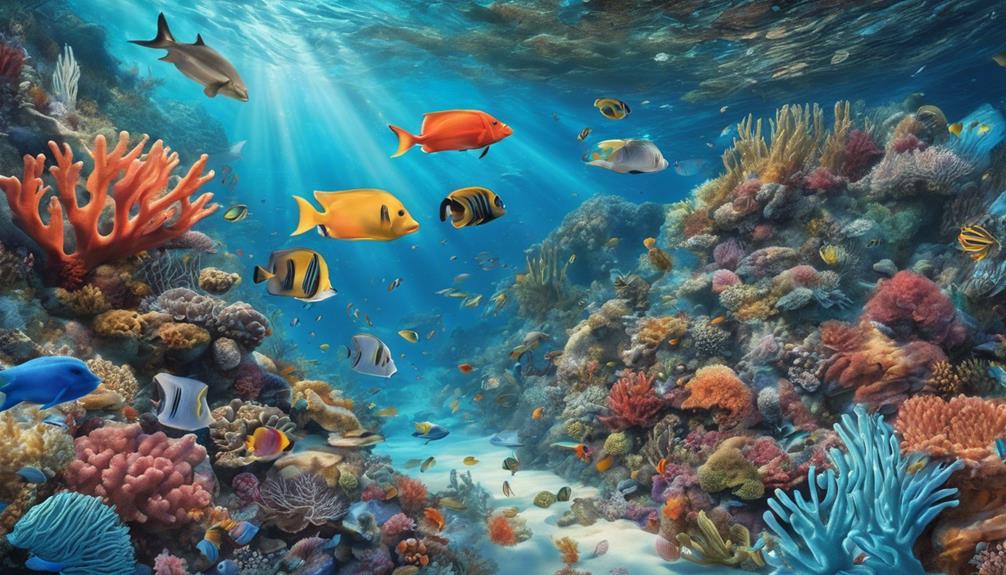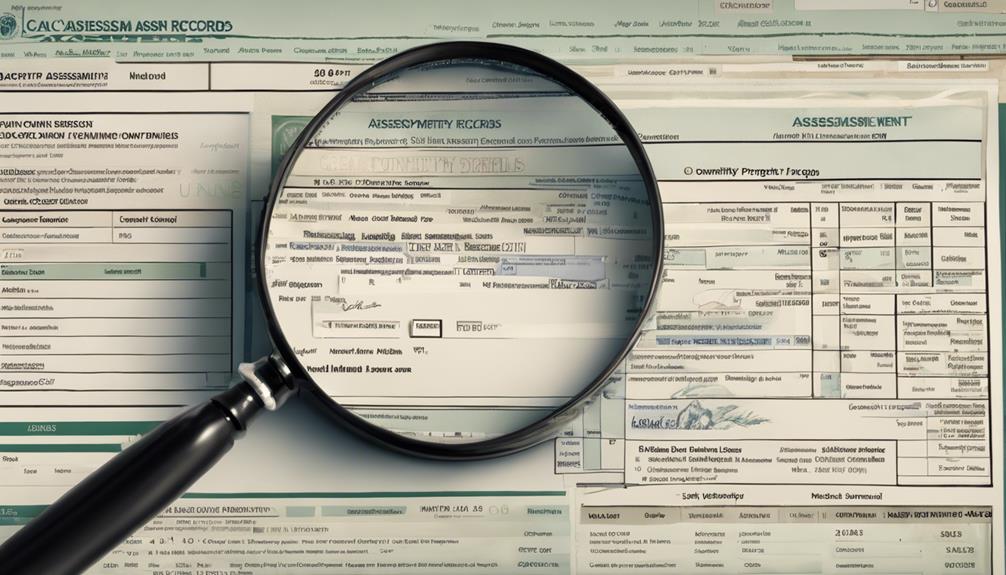Imagine a situation in which a person, whom we’ll refer to as Alex, sets out on an expedition of self-exploration using the Big Five Personality Assessment Model, also known as OCEAN.
As Alex delves into the intricacies of Openness, Conscientiousness, Extraversion, Agreeableness, and Neuroticism, a profound realization dawns.
But what insights will Alex gain from unraveling these five dimensions of personality?
By unveiling the Big Five Model in 5 steps, we aim to shed light on its practical applications, impact on personal development, and the nuances of each trait.
Key Takeaways
- The Big Five Model categorizes traits into OCEAN dimensions for behavior prediction.
- Personality traits can be accurately measured using tools like NEO-PI-R and BFI.
- Coaches apply OCEAN insights for tailored strategies and effective communication.
- Despite critiques, leveraging the Big Five Model enhances goal setting and proactive behavior predictions.
Understanding the Big Five Model
In exploring the Big Five Personality Model, we delve into a framework that categorizes personality traits into five distinct dimensions: Openness, Conscientiousness, Extraversion, Agreeableness, and Neuroticism, forming the acronym OCEAN. This model serves as a valuable tool in understanding individual differences and predicting behavior across various contexts. Personality assessments based on the Big Five Traits offer insights into how people may approach tasks, interact with others, and cope with challenges, making them crucial for personal growth and career planning.
Openness, the first trait, reflects one's receptiveness to new ideas, experiences, and ways of thinking. Individuals high in Openness tend to be imaginative, curious, and open-minded, embracing creativity and innovation. Conscientiousness, on the other hand, pertains to one's level of organization, responsibility, and goal-directed behavior. Those scoring high in Conscientiousness are typically diligent, reliable, and detail-oriented, excelling in tasks that require precision and planning.
Agreeableness focuses on interpersonal relationships, reflecting one's kindness, cooperation, and empathy towards others. People high in Agreeableness are compassionate, trusting, and cooperative, fostering harmonious connections and teamwork. Lastly, Neuroticism measures emotional stability and resilience in the face of stressors. Individuals with high Neuroticism may experience heightened levels of anxiety, moodiness, and vulnerability to negative emotions.
Understanding these dimensions of the Big Five Model provides a foundation for navigating personal growth, career choices, and social interactions with greater insight and clarity.
Exploring OCEAN Traits

Within the realm of personality psychology, delving into the OCEAN traits offers a comprehensive understanding of key dimensions that shape individual behavior and interactions.
Openness, the first trait, encompasses characteristics such as creativity, curiosity, and a readiness to embrace novel experiences. This trait indicates an individual's receptiveness to new ideas and ability to think outside the box.
Moving on to Conscientiousness, it highlights qualities like organization, reliability, and a strong sense of purpose. Individuals high in Conscientiousness are often diligent, detail-oriented, and focused on achieving their goals systematically.
Extraversion, the third trait, reflects sociability, assertiveness, and a preference for social engagements. Those high in Extraversion tend to draw energy from social interactions and are often outgoing and talkative.
Agreeableness, the fourth trait, involves attributes such as compassion, empathy, and a tendency to prioritize harmonious relationships.
Measuring Personality Traits
Exploring the assessment of personality traits through the Big Five model involves utilizing tools such as the NEO-PI-R and BFI to measure key dimensions like Openness, Conscientiousness, Extraversion, Agreeableness, and Neuroticism in individuals. The NEO-PI-R test is a comprehensive tool with 240 items, taking 45-60 minutes to complete, providing detailed insights into an individual's personality traits. Online assessments offer various versions of the Big Five personality tests for free, presenting diverse formats for evaluating these traits. The cost of the NEO-PI-R test varies from 58 to 540 USD, depending on the version and duration of the assessment.
| Traits | Assessment Tools |
|---|---|
| Openness | NEO-PI-R, BFI |
| Conscientiousness | NEO-PI-R, BFI |
| Extraversion | NEO-PI-R, BFI |
| Agreeableness | NEO-PI-R, BFI |
| Neuroticism | NEO-PI-R, BFI |
These tools play a crucial role in measuring the Big Five traits accurately, providing valuable insights into an individual's personality makeup.
Applications in Coaching

Utilizing the insights provided by the OCEAN model, coaches enhance their understanding of clients' traits to optimize coaching outcomes. When applying the Big Five Traits in coaching, several key elements come into play:
- Tailored Approaches: Coaches tailor their strategies based on clients' openness, conscientiousness, extraversion, agreeableness, and neuroticism.
- Effective Communication: Understanding these traits helps in communicating effectively with clients, fostering a deeper connection.
- Goal Setting: Leveraging the OCEAN model aids in setting realistic and achievable goals that align with clients' personality traits.
- Predictive Insights: By predicting client behaviors through the OCEAN model, coaches can proactively address potential challenges and provide suitable support.
Critiques and Limitations
Critics of the Big Five Personality Assessment Model argue that its reduction of personality to five broad traits oversimplifies the complexity of individual differences. While the Big Five Traits provide a valuable framework for understanding personality, some researchers question its universality and applicability across diverse populations.
The Model of personality may not fully capture all aspects of an individual's character, leading to limitations in predicting behavior accurately. Moreover, the dynamic nature of traits over time challenges the model's stability in assessing personality consistently.
Critics also point out the model's lack of a comprehensive theoretical foundation, raising concerns about its validity in correlating personality traits effectively. Additionally, the Big Five model may not account for unique nuances in personality expression, potentially overlooking essential variations in individuals' traits.
Acknowledging these critiques and limitations is crucial in refining our understanding of personality beyond the confines of the Big Five Traits.
Frequently Asked Questions
What Is the Big 5 Ocean Personality Model?
The Big Five OCEAN personality model encompasses five key traits:
Openness, Conscientiousness, Extraversion, Agreeableness, and Neuroticism.
It serves as a fundamental tool for understanding individual differences.
Developed by Costa and McCrae, this model provides a structured framework for assessing personality traits, impacting various aspects of life.
Each trait exists on a spectrum, offering unique insights into one's behavior and preferences.
This model is widely used and scientifically validated.
What Are the 5 Main Components of Personality Represented by the Ocean Model Discussed in Chapter 12?
The five main components of personality represented by the OCEAN model are Openness, Conscientiousness, Extraversion, Agreeableness, and Neuroticism. These traits impact our behavior, decision-making, and interactions with others.
Openness reflects creativity and curiosity, Conscientiousness speaks to organization and dependability, Extraversion relates to social energy, Agreeableness emphasizes harmony and cooperation, and Neuroticism pertains to emotional stability.
Understanding these components can enhance self-awareness and guide personal growth.
How Does OCEAN as a Method of Measuring Personality Works?
When we explore how OCEAN measures personality, it's important to note that this method works by evaluating individuals across five key traits: Openness, Conscientiousness, Extraversion, Agreeableness, and Neuroticism.
Through standardized tests like the NEO-PI-R and BFI, OCEAN captures a wide range of personality differences, providing a comprehensive understanding of individuals' unique traits and behaviors.
This model offers a nuanced view of personality dynamics, enhancing our insights into human behavior.
What Are the 5 Dimensions of the Big 5 Personality Test?
The 5 dimensions of the Big Five Personality Test are:
- Openness
- Conscientiousness
- Extraversion
- Agreeableness
- Neuroticism
These dimensions offer a holistic perspective on an individual's personality traits and behaviors. Each dimension spans a spectrum from low to high levels, capturing various aspects of one's character.
Understanding these dimensions can provide valuable insights into how a person interacts with the world and approaches different situations.
Conclusion
In conclusion, the Big Five Personality Assessment Model, or OCEAN, offers a comprehensive framework for understanding human behavior and traits. By delving into the five fundamental dimensions, individuals can gain valuable insights into themselves and others.
While not without its critiques and limitations, this model provides a valuable tool for personal growth, career development, and interpersonal relationships.
Let's embark on a journey of self-discovery through the lens of the Big Five!









